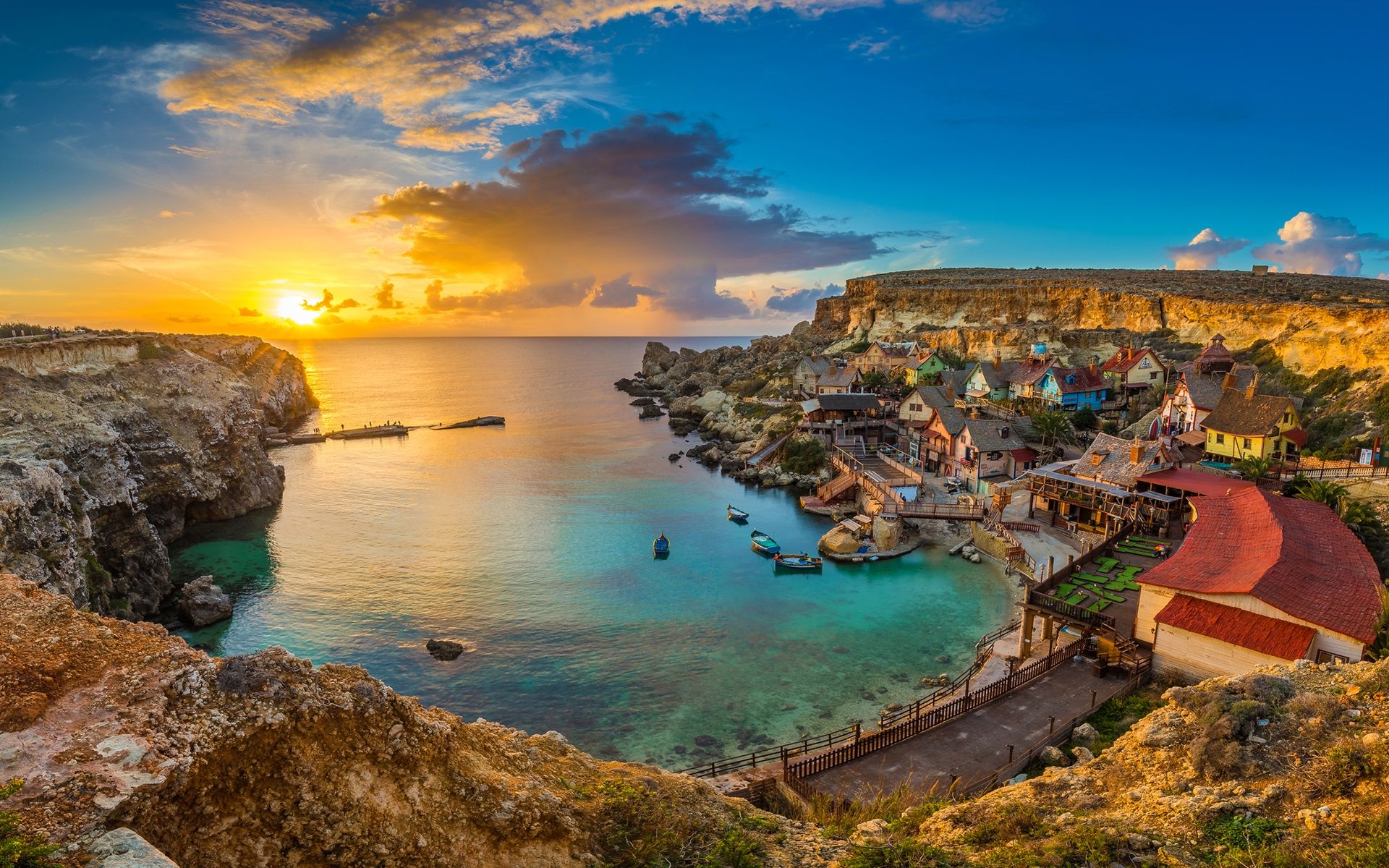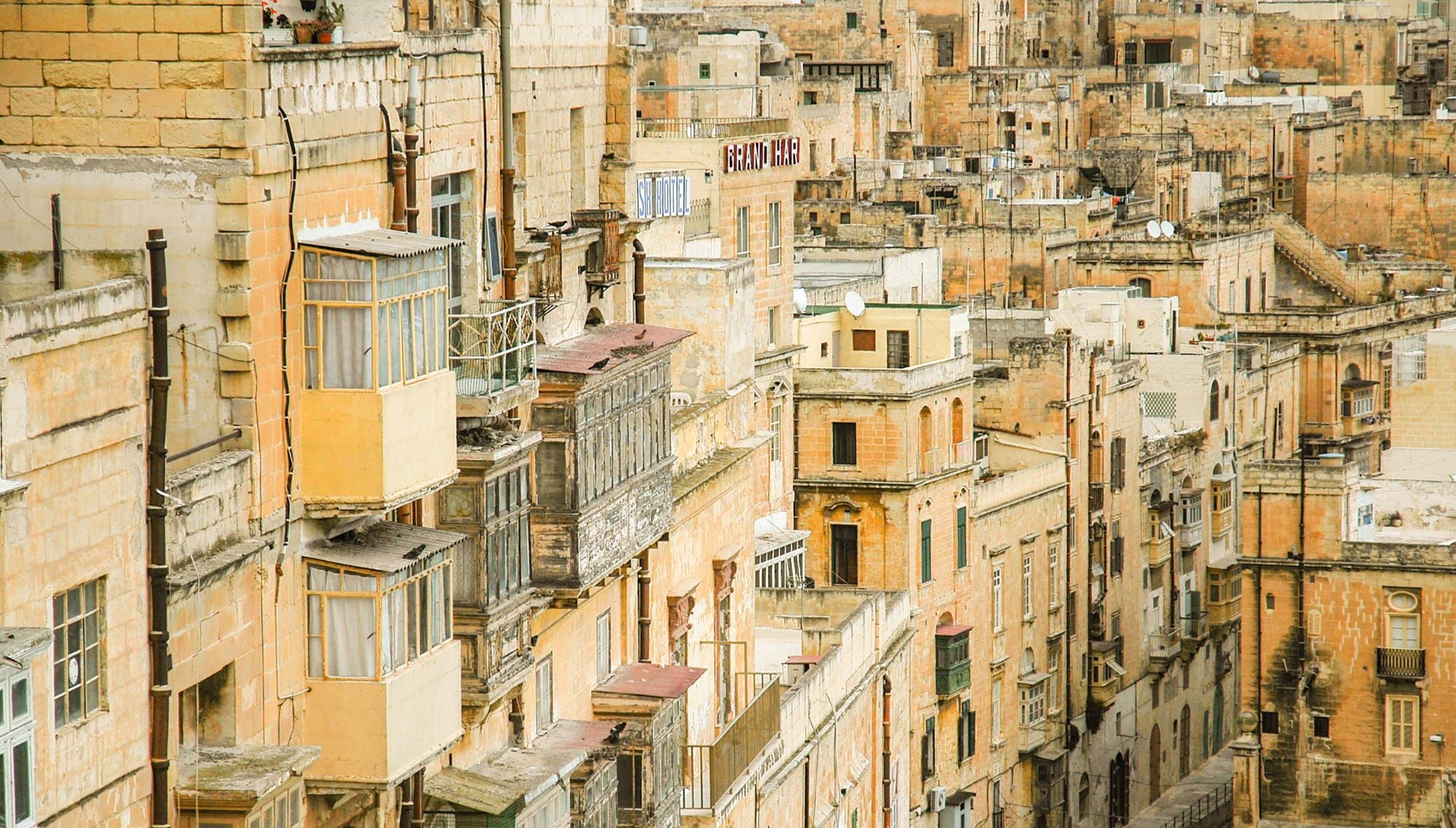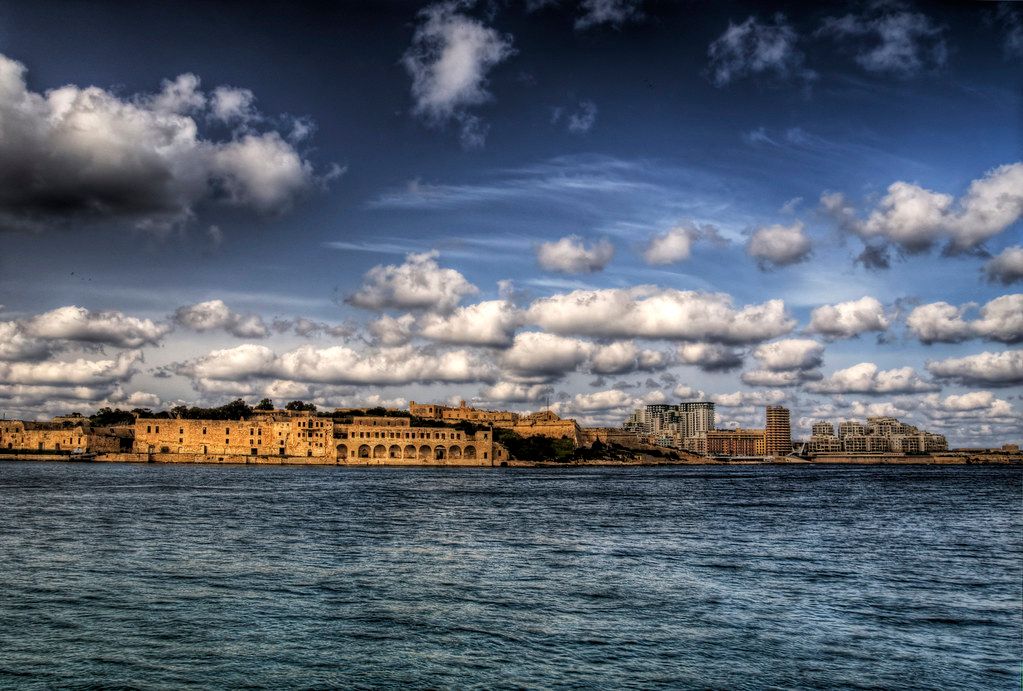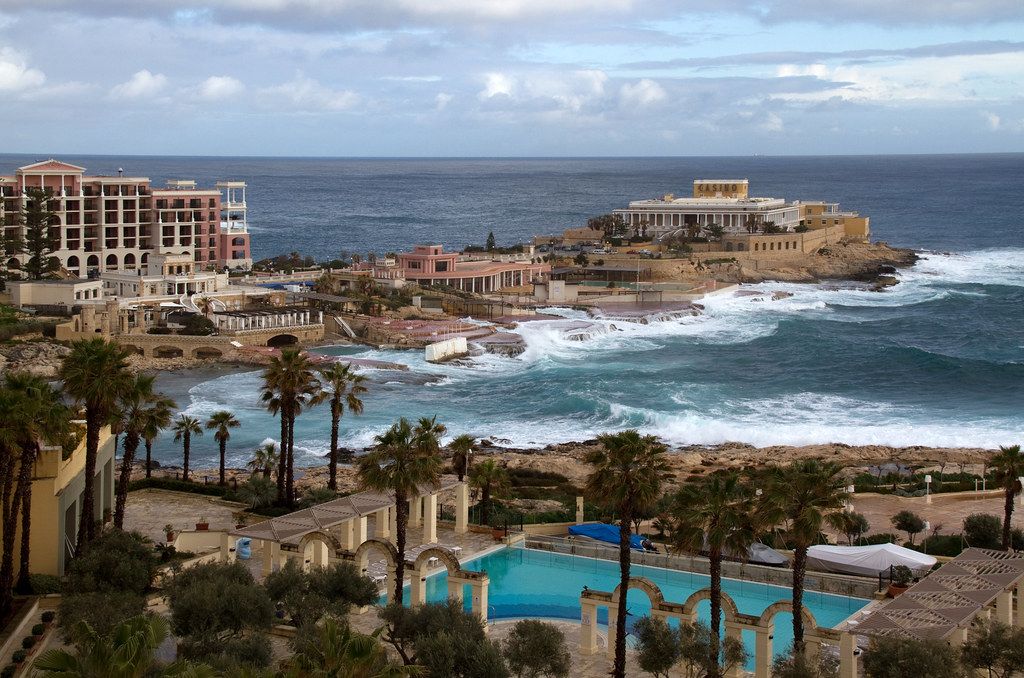CHAT
WITH US
WITH US
GET A
QUOTE
have questions? call us
+44 3330 907053

Blog • Europe • 17 Jul 2024
Share this article
Welcome! You're about to get the scoop on all things required for moving to Malta from the UK. Thinking of moving to this sunny Mediterranean island where opportunities bloom and the stylish Mediterranean vibe awaits? Being from Britain, your relocation journey will touch on topics such as getting a new home, staying healthy, finding work, and meshing with the local culture.
It's key to keep an eye on updates from the British High Commission in Valletta and the advice from Maltese authorities. Especially now with the ongoing pandemic, knowing the latest on travel and vaccine rules is important for UK folks making the move to Malta.
If you're eyeing a move to Malta, know that the last day to ask for a new residence status was 30 June 2021. But, there's still hope if your situation is special. Plus, if you're joining a family who already lives in Malta, you can do so later on.
When you head to Malta, take your papers that show you can stay there or work under the Withdrawal Agreement, plus your passport. And here's a heads-up: being a Brit in Malta means you should keep your trips to other Schengen countries within the 90-day limit. Knowing this makes adjusting and living smoothly in Malta easier.

Malta is becoming more popular for those wanting a Mediterranean life. Its warm weather, rich history, and friendly people draw many to the island.
Malta's climate is Mediterranean, making it warm and sunny. In the hottest months, average temperatures hit 32°C. It gets 3200 sunshine hours yearly, perfect for those who love the outdoors. The island's scenic views and clear waters are a dream for many.
Drenched in history, Malta has ancient temples and mediaeval cities. Valletta, the capital, is 58% cheaper to live in than Stockholm. It's famous for places like the Hypogeum of Ħal-Saflieni, which is one of the world's oldest structures. Malta blends old charm with modern comforts very well.
Malta stands out with its friendly English-speaking people. Since English is widely spoken, it's easy to get by. Renting a house is easy, and the community is welcoming. With fast internet at €50 a month and affordable dining, Malta makes life comfortable and fits many budgets.
If you're into warm weather, history, and friendly atmospheres, Malta is a top choice. It has a lot to offer in terms of lifestyle, culture, and climate.
Getting residency in Malta after Brexit has changed for UK individuals. Knowing the visa rules and application steps is crucial. It helps make moving smoother.
After Brexit, UK citizens' rights in EU countries, including Malta, changed. Malta allows visa-free visits to the Schengen Area for 90 days in 180 days. But, for longer stays or jobs in Malta, special visas are needed.
It's important to have health insurance for your time in Malta. Normal travel insurance might not cover medical costs. Always have your passport with you in the Schengen area. And make sure your job qualifications are valid in Malta.
Malta has different types of residency visas. They are for various purposes:
To get permanent residency in Malta, you must follow strict visa rules. First, get a job and a single employment permit that needs yearly renewal. After five years living there, you can apply for long-term residency.
Here's what you might spend money on:
Expense | Cost (Monthly) |
| Two-bedroom apartment in central locations (Sliema/St. Julian's) | €1218 |
| Utilities (excluding rent) | Varies |
Family of British citizens can move to Malta any time and apply for a WA residence card after 90 days. Make sure you have the right documents for travel.
It's key to know Malta's visa rules well if you're a UK citizen moving there. Keep up with the latest Maltese guidelines and have all your paperwork ready.

Malta's job market is perfect for UK citizens. It offers jobs in finance, iGaming, IT, and more. With their skills and English, Brits do well in these fields.
In Malta, key sectors like finance and iGaming are booming. Finance jobs include banking and accounting. The iGaming world is big here, needing IT and gaming experts.
Jobs in tourism and the sea are also plentiful. Malta's nice location and cultural history make for many job chances in these areas.
If you want to work in Malta over 90 days, you need a work permit. You must have a job offer from a Maltese company. This makes the process faster.
The Key Employee Initiative helps non-EU workers get permits in five days. You'll also need a clean record and, if needed, a degree check.
Brexit changed how UK people work in Malta. Now, a visa is needed for over 90-day stays in 6 months. But, Malta has ways to make staying longer easier.
Programs like the Global Residence and Malta Permanent Residence help with this. They make it simpler for Brits to work and live in Malta longer.
Programme | Description |
| Global Residence Programme (GRP) | Provides attractive tax benefits and residency rights for non-EU nationals. |
| Malta Permanent Residence Programme (MPRP) | Offers residency to individuals and families, enabling them to live in Malta indefinitely. |
| Key Employee Initiative (KEI) | Expedites the work permit process for non-EU skilled workers, with approval typically in five working days. |
| Highly Qualified Persons (HQP) Scheme | Attracts professionals in key industries offering significant tax reductions on their earnings. |
| Nomad Visa | Suitable for remote workers who wish to reside in Malta while working for a non-Malta company. |
Malta has a full and available healthcare setup, attracting UK people. Knowing about public and private healthcare, getting registered, and health insurance options is key. This makes moving smooth.
In Malta, healthcare splits into public and private parts. State health services are free for UK citizens who pay into social services or if they have a job there. Those working pay about 10% of their salary towards it, matched by their employer. If you work for yourself, you pay around 15%.
Emergency dental help is free in some state places, but not general dental care. State hospitals provide free medicine for inpatients and for three days after they leave. After that, there's a charge. People with low income or chronic issues might get free medicine.
Signing up for healthcare in Malta is easy. UK people can go without a GP, just find a local health centre. You must show a payslip or a card proving you can use the service each time. UK workers or students in Malta can use special health cards or forms. If you get UK state support, you can get healthcare there funded by the UK also.
Many choose private health insurance in Malta to widen their care choices and reduce waits. Different companies offer plans for various needs and budgets. Looking at these plans helps you understand your health coverage well, keeping you and your family safe.

Moving to Malta makes schooling easy for UK families. Malta's system is much like the British one. This makes the shift simple for children, keeping their study path consistent.
In Malta, kids must go to school from 5 to 16 years old. The school year starts in September and ends in June. Children can attend state or private schools. State schools use Maltese, but many private schools teach in English. They also follow the British curriculum. Kids aged 3 to 5 can go to kindergarten for free, preparing them for school.
Malta is great for further study too. The University of Malta is very old, from 1592, and offers many courses. It welcomes students from Malta and around the world. There is also the Malta College of Arts, Science & Technology (MCAST), offering many subjects. This is suitable for UK families looking for high-quality education.
If you want a school that is just like the UK, Malta has them. Verdala International School and St. Edward's College follow the UK curriculum. This helps students fit right back in with their studies. These schools are also full of students from different places, giving everyone a multicultural experience.
Aspect | Details |
| Compulsory Education | Ages 5 to 16 |
| School Year | September to June |
| Instruction Language in State Schools | Mostly in Maltese |
| British Curriculum Schools | Verdala International School, St. Edward's College |
| Free Kindergarten | Ages 3 to 5 |
| Higher Education Institutions | University of Malta, MCAST |
Adjusting to Malta's education can be a great experience for UK families. There are schools with the British curriculum. Plus, Malta's international schools are top-notch, making the journey smooth and stable.
When you move to Malta, finding the right place to live is key. The property market in Malta is varied, with lots of choices like flats, townhouses, and villas. Areas like Sliema and St. Julian's are popular for their lively vibe and nearby conveniences but come with higher rents.
Over 15,000 British people have chosen to live in Malta. Many live in the busy northern area of Valletta, which can be a bit more expensive. If you're looking for peace and quiet, the southern and northern countryside is ideal. Gozo, Malta's smaller sister island, is known for its beauty, attracting many people.
You can find accommodation in Malta through trusted real estate agencies. Big names in the business include RE/MAX and Quicklets. They understand what you need and help you find that perfect place. If you'd rather look on your own, websites like Maltapark and networks like Facebook are great places to search.
Here's a list to help you see what different areas are like:
Area | Key Features | Accommodation Type | Estimated Rent |
| Sliema | Vibrant with many amenities | Flats, Townhouses | High |
| St. Julian's | Popular nightlife and dining | Flats, Villas | High |
| Valletta | Historical and commercial hub | Flats, Townhouses | Medium |
| Gozo | Scenic and tranquil | Villas, Traditional Houses | Variable |
| Countryside/Villages | Quiet and spacious | Traditional Houses, Villas | Low to Medium |
Expats have good options in Malta's property market. For instance, they can buy in Special Designated Areas without a permit. Plus, Malta's living costs are lower than the UK's, which makes it an even more attractive choice.
In short, whether you like the city's hustle or the countryside's peace, you can find your perfect home in Malta.

Thinking about moving to Malta from the UK means comparing living costs. Malta usually is cheaper to live in. But remember, some things can be more expensive there.
In Malta, renting is more affordable. For example, renting a one-bedroom flat in Valletta costs about €970 a month. This is almost 19.03% less than in the UK. You'll also pay less for utilities. In Malta, monthly expenses for an 85-square metre flat are about €92. In the US, this could be as high as €203.
[Continued from previous section]
Expense | Malta | UK |
| Rent (1-bedroom, city centre) | €970 | €1,161 |
| Utilities (85 sqm apartment) | €92 | €286 |
Food shopping is between €180 and €370 weekly, depending on your family's size. You can save money by buying local or Italian products. Eating out in Malta is quite affordable. Restaurants are 15.7% cheaper than in the UK. An inexpensive meal costs about 25% less when compared to the US. Also, imported beer is 25.1% cheaper.
Expense | Malta | UK |
| Inexpensive meal | €15 | €17.8 |
| Three-course meal for two | €60 | €61.02 |
| Weekly groceries | €180 - €370 | €190 - €400 |
| Imported beer | €2.5 | €3.3 |
Moving around in Malta is not as costly. A single bus ticket is €1.75, much cheaper compared to the US. Monthly bus passes cost a bit over €26. In the UK, you might pay as much as €77. Healthcare is also cheaper in Malta. People pay as little as €50 a month for it.
Expense | Malta | UK |
| Local transport (one-way ticket) | €1.75 | €3.50 |
| Monthly transport pass | €26 | €77 |
| Healthcare contribution | €50 | €100+ |
Looking at the costs, Malta is a good choice for housing, utilities, and daily expenses. But, mobile phone plans might be pricier there. So, it's a mixed picture in terms of spending money wisely in Malta.
Understanding Maltese customs and culture is key for fitting in well in Malta. The country's mixed heritage creates lively traditions and events you'll want to be part of.
Maltese people are known for being welcoming and warm to new faces. This comes from their close-knit community and family values. Joining in local celebrations like village festas and Carnival offers a great peek into their way of life.
Speaking English in Malta is a big help, especially for those from the UK. It makes it easier to connect with locals and get things done. The Maltese language is also interesting, echoing other Mediterranean tongues.
Local food plays a big part in Maltese culture. You'll find a mix of Sicilian and British influences in dishes like rabbit stew and pastizzi. Eating with others is a perfect way to get to know the culture.
The buildings in Malta tell a story of its past. From prehistoric temples to the grand buildings in Valletta, these sites are a must-see. They help you understand Maltese customs and history.
Getting used to how things are done in Malta is important. This includes polite greetings and knowing about the local law. The country is mainly Catholic, so their traditions focus on religious events.
If you're thinking of moving to Malta, being well-prepared is a good idea. Services like Advance Moves can help with many parts of the move. They cover everything from sorting out paperwork to understanding customs.
Moving to Malta needs careful planning. You must tell UK authorities, sort out money matters, and plan how to move your stuff. This guide aims to make your preparation simple.
It's crucial to let important UK bodies know you're moving. This includes HM Revenue and Customs (HMRC) and your local council. Updating your info stops tax and voting issues.
Good financial planning is essential for a hassle-free move. Open expat accounts with banks in Malta, like APS Bank or Bank of Valletta. Let your old bank know about your move to avoid trouble.
Redirecting your mail to Malta is a must. Use the Royal Mail service to ensure important posts reach you. Also, watch out for rules when moving your things to Malta, avoiding delays and fees.
Focusing on these key tasks will lead to a smoother, trouble-free move to Malta.
Heading to Malta from the UK? There's a lot to think about. You'll need to pick the right international removals company. Plus, make sure all your documents are sorted. This will help your move go smoothly.
First, find a good removal company. Deliver1 is a great example. They know how to move your stuff to Malta without a hitch. Look for a company with lots of experience in international moves. They can make the process a lot easier for you.
Getting your paperwork right is key. You'll need an inventory of your items, proof that they're yours, and sometimes a value declaration. Having these ready will help customs go through your things quicker. It also stops any hold-ups.
Bringing pets along? Make sure you know the rules. All pets must have recent vaccinations, a microchip, and an EU passport. They might also need a specific treatment, like for tapeworms. Checking and following these rules means a smooth move for your pets.
As you've discovered, Malta offers a unique blend of history, culture, and opportunity for UK citizens seeking a change of pace. From its sunny climate and stunning landscapes to its friendly community and thriving job market, Malta has something to offer everyone.
If you're ready to embrace the Maltese lifestyle, take the next step and start your journey today. Explore the available options for visas and residency, find your perfect home, and immerse yourself in the rich tapestry of Maltese customs and traditions.
With careful planning and preparation, your transition to Malta can be smooth and rewarding. Don't miss out on this chance to create a fulfilling life in this Mediterranean paradise.
We love hearing from you-so please get in touch with any questions or queries.
We love hearing from you-so please get in touch with any questions or queries.
Working hours
Mon - Sat: 08:00 - 17:00
Sun: Closed
Call
+44 3330 907053Location
Unit 3, Newyears Green Lane
Newyears Green
Uxbridge
UB9 6LX
United Kingdom
